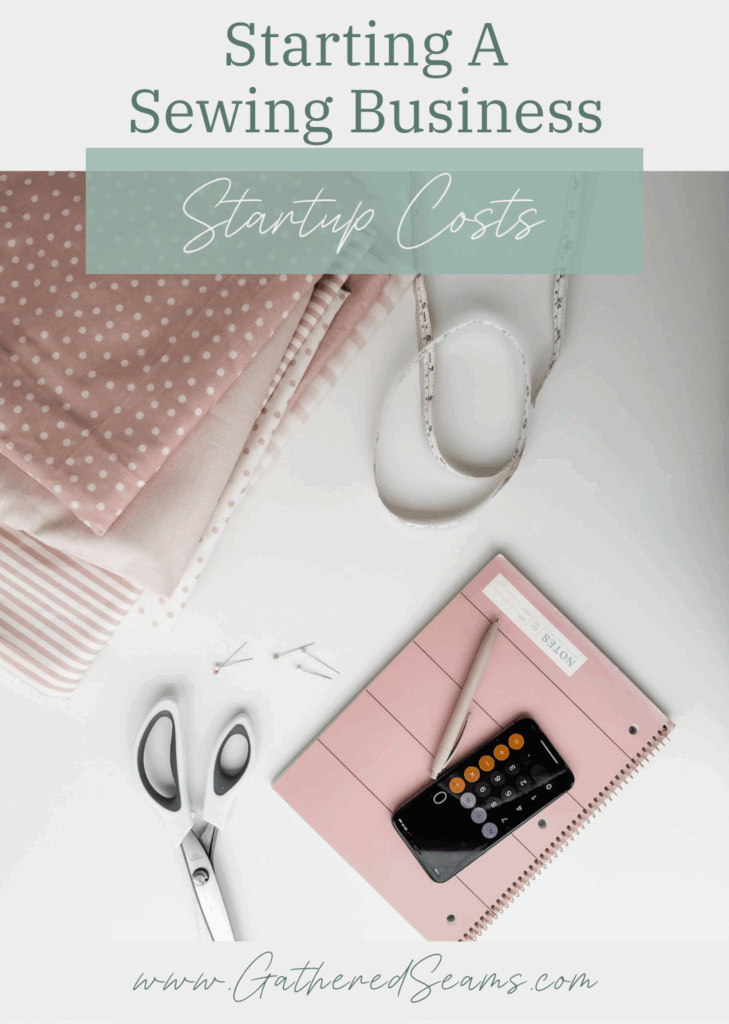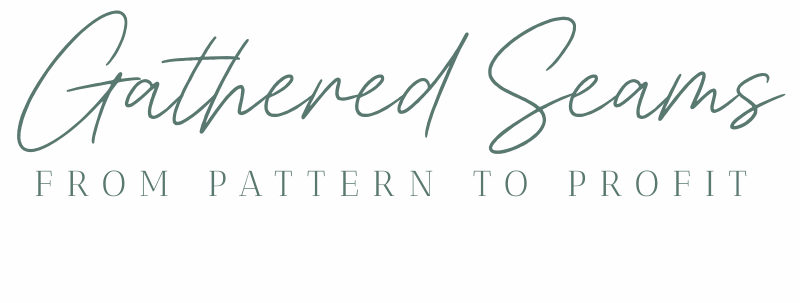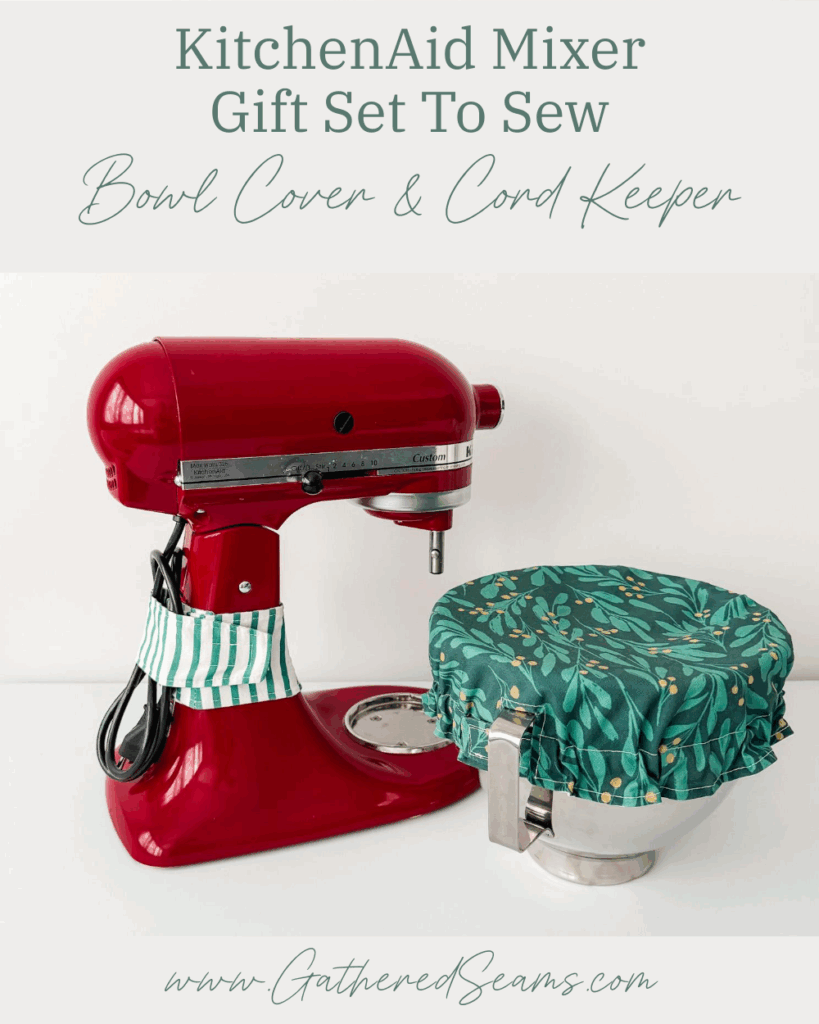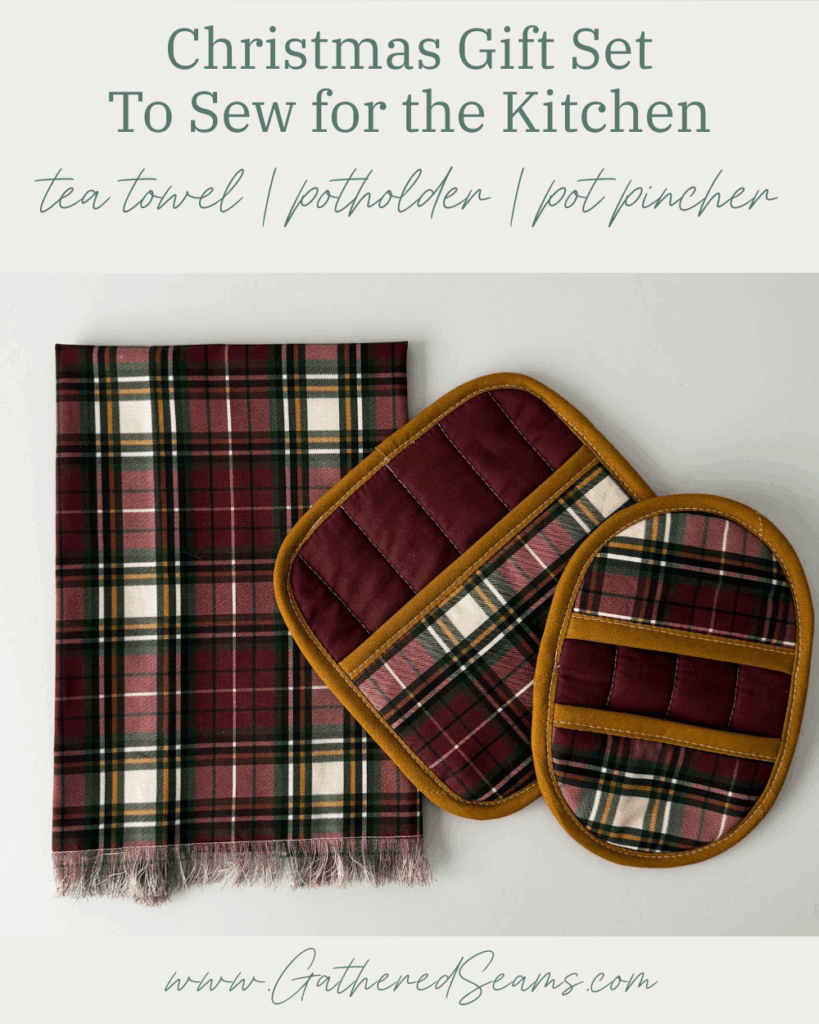Startup Costs for a Sewing Business

There are many costs to running a sewing business, and your startup costs may be different depending on the tools and equipment you already own, the type of business you’re starting, and where you’re operating.
Therefore, it makes it very difficult to give accurate numbers. So this article provides a rough estimate of common costs.
Each cost outlined here may not apply to your business.
Please understand the laws and regulations you must follow for your specific business and jurisdiction. Then research the costs in your area and currency.
LEGAL COSTS
1 – Name Search
To ensure you’re not infringing on another business’s registered name, you may need to have a name search completed.
This is free in some states but can cost anywhere between $10 – $75, depending on your location and the type of business you’re setting up (e.g. if you’re incorporating).
2 – Domain registration
If you plan to set up a website, you’ll need to register a domain name with a registrar such as GoDaddy, Namecheap, etc.
Once you decide on an available name for your business, you can register a domain, which typically costs between $10 – $20.
3 – Business registration
You may or may not need to register your business; that varies by location. If you’re not required to register your business, you won’t have a cost. If you are registering your sewing business as a sole proprietorship, partnership, LLC, or Corporation, fees can range from $20 – $600+.
4 – Business licenses
Some municipalities will require you to have a business license, while others may not. If you do require a business license, it can cost anywhere from $25 – $500, depending on what you sell, how you sell it, and where you sell it.
5 – Permits
Your business may require permits based on your location, what you sell, where you sell it, how much revenue you earn, etc. For example, you may need a sales tax permit or a vendor permit (to sell on your own in a public area).
Permits required vary by location and the type of business you’re running, but costs may range from no fee to $100.
6 – Regulations
Depending on what you sell, there may be health and safety regulations you must follow, and there may also be testing and certification required (e.g. if you sell children’s sleepwear, there are flammability standards, labelling requirements, chemical safety requirements, etc.)
Testing, consultation, certification, and compliance can add costs of $50 and up.
7 – Insurance
Whether you get insurance for your business is up to you. If you’re selling higher-risk items (e.g. baby toys or infant sleepwear), you may want to invest in insurance. There are many factors that will affect the cost of insurance, but General Liability Insurance for a small business typically starts at $300/year and increases based on risk level, location, coverage, etc.
8 – Contracts and terms
You may also require policies, terms, and contracts for your sewing business. For example, if you have a website, you’ll need a Privacy Policy, Terms of Use, and/or a Disclaimer.
You may write these yourself, purchase templates, or have them professionally written.
Costs can range from $20 – $1000+, depending on what you require.
9 – Bookkeeping
You may hire an accountant to help you with your business taxes (approx $300 – $2000) or use software such as QuickBooks (approx $25/month).
Optional
In most cases, a small handmade business doesn’t need to complete these steps; however, some may want to.
Trademark search
This is optional, but it may be important to your business before investing time and money into a name, logo, or slogan to ensure you’re not infringing on existing registered or pending trademarks. It’s also an important step to take if you want to trademark your name, logo, or slogan (which is also optional)
You can complete this search on your own or use legal or professional services, which can range from $150 – $4000+.
Trademark registration
If you want to register a trademark and protect your name, logo, or slogan, costs start at $350 and go up. There will also be renewal fees after a set number of years.
Copyright registration
Copyright registration can protect a piece of your work (e.g. a pattern or design) and prevent others from copying it. Most small businesses don’t worry about registering their copyright material, but costs start at $45 per application.
EQUIPMENT & TOOLS
Depending on what you own and what you plan to make, you may need items such as:
- Sewing machine
- Serger
- Cutting tools and mat
- Iron and ironing board
- etc.
Costs can range from $20 – $1000+.
MATERIALS
You’ll need materials to create your first line of products to sell. Most projects require:
- Fabric
- Thread
- Batting or interfacing
- Notions (zippers, buttons, snaps, ribbons, etc.)
- Labels and tags
These costs will vary greatly, depending on how much you buy, so I’m unable to provide an estimate, but use this list to research your costs.
BRANDING & MARKETING
You can keep costs low by designing logos, websites, business cards, etc., yourself. If you want to hire someone to design these elements, you might pay anywhere from $20 – $300+
There will also be fees for having business cards, flyers, or brochures printed. You can print at home or have them professionally printed and shipped, with costs starting around $20 and going up.
SALES CHANNELS
Once you have a product to sell, you’ll need an outlet to sell it. Craft shows and online marketplaces are the most common ways to sell handmade goods.
Craft show fees tend to start at $50/event and increase depending on the size of the event and its popularity.
Online marketplaces charge minimal fees to set up your shop, but tend to take a commission when you make a sale. Depending on where you want to sell online, these startup costs may start around $5 and go up.
I hope you find this list helpful for getting a rough idea of typical startup costs for a sewing business.



